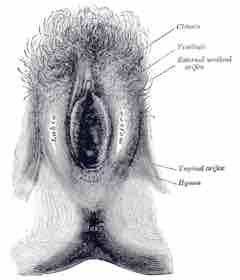Micturition, also known as urination, is the ejection of urine from the urinary bladder through the urethra to the outside of the body. In healthy humans the process of urination is under voluntary control. In infants, elderly individuals, and those with neurological injury, urination may occur as an involuntary reflex.
Physiology of Micturition
Physiologically, micturition involves the coordination of the central, autonomic, and somatic nervous systems. The brain centers that regulate urination include the pontine micturition center, the periaqueductal gray, and the cerebral cortex, which cause both involuntary and voluntary control over micturition.
In males, urine is ejected through the penis, and in females through the urethral opening. Due to sexual dimorphism, and the positions where the urethra ends, males and females often use different techniques for urination. Micturition consists of two phases:
- The storage phase: A relaxed bladder in which urine slowly fills the bladder.
- The voiding phase: A contracted bladder that forces the external sphincter open and discharges urine through the urethra.

Location of urethral orifice in females
Location of the external urethral orifice in adult females. between the vestibule and the vaginal orifice.
The muscles controlling micturition are controlled by the autonomic and somatic nervous systems, which open the two sphincters during the voiding phase of micturition. During the storage phase the internal urethral sphincter is tense and the detrusor muscle is relaxed by sympathetic stimulation. During the voiding phase of micturition, parasympathetic stimulation causes the internal urethral sphincter to relax. The external urethral sphincter (sphincter urethrae) is under somatic control and is consciously relaxed (and thus opened) during micturition.
Many males prefer to urinate standing. In females, the urethra opens straight into the vulva. Because of this, the urine often does not exit at a distance from the body and is therefore seen as harder to control.
The Micturition Reflex
The state of the micturition reflex system is dependent on both a conscious signal from the brain and the firing rate of sensory stretch fibers from the bladder and urethra. At low bladder volumes, the afferent firing of the stretch receptors is low, and results in relaxation of the bladder. At high bladder volumes, the afferent firing of the stretch receptors increases, and causes a conscious sensation of urinary urge. This urge becomes stronger as the bladder becomes more full.
The micturition reflex causes bladder contraction during voiding, through a neural pathway. This reflex may lead to involuntary micturition in individuals that may not be able to feel the sensation of urinary urge, due to the firing of the stretch receptors themselves.